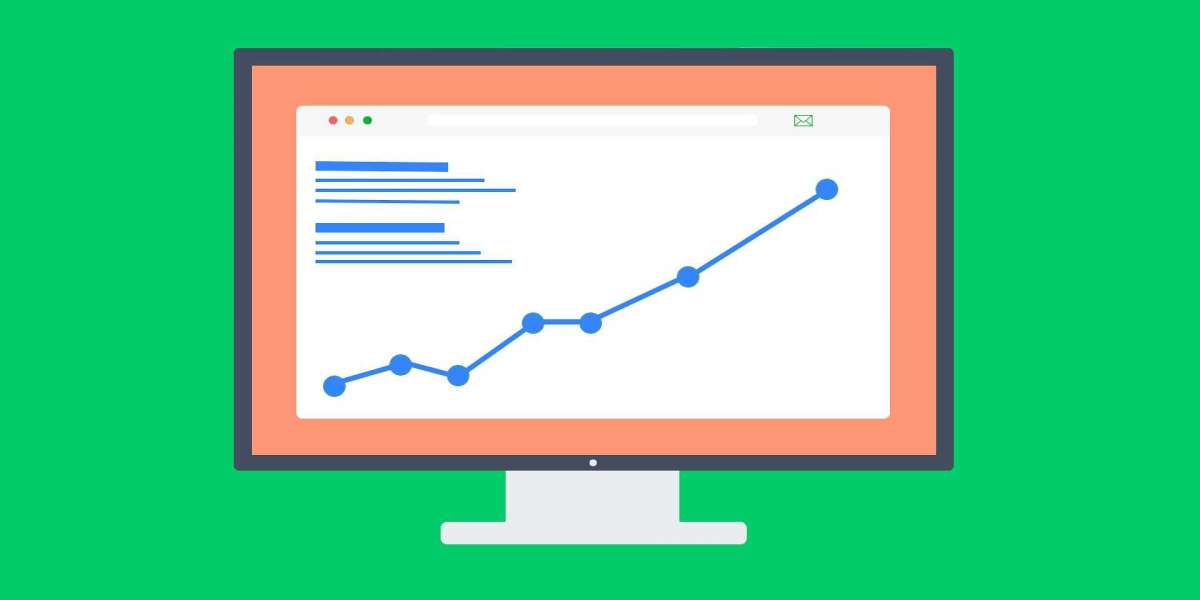Let’s cut through the noise.
Local SEO is no longer a luxury. It’s a necessity. If you’re a small business—whether you're a local bakery, a freelance accountant, or a plumber servicing three zip codes—your visibility online directly impacts your bottom line. The problem? Most small business owners assume that ranking locally online means spending thousands every month on SEO retainers, software, and consultants. That belief is costing them business they could win—without breaking the bank.
The truth is, you don’t need a big budget to show up in local search results. You need clarity, consistency, and the right strategy. Google doesn’t rank businesses based on how much money they spend; it ranks them based on how well they meet local user intent. And that’s where this guide comes in.
Why Local SEO Matters for Small Businesses
Here’s a stat that should stop you in your tracks: 46% of all Google searches are local. That’s nearly half of all searches focused on people trying to find services, businesses, or solutions nearby. And when they do—whether it's "best hairdresser near me" or "tax consultant in Dallas"—Google serves up a list of businesses that meet that local need. If you're not on it, your competitors are. Simple as that.
Local SEO helps your business:
- Appear in map packs and "near me" searches
- Build credibility through reviews and directory listings
- Drive in-store visits, phone calls, and bookings
- Attract nearby customers who are ready to convert
The Myth of "Expensive" SEO
Here’s what most SEO agencies won’t tell you: you can do 70–80% of local SEO yourself—for free.
Yes, there are high-ticket services out there, and yes, they serve a purpose. But for most small businesses, you don’t need to pay a premium to:
- Claim and optimize your Google Business Profile
- Use local keywords on your website
- Submit your business to online directories
- Ask happy customers to leave reviews
- Create location-focused content
The idea that SEO is prohibitively expensive is outdated—and frankly, harmful. With the right knowledge and tools, local SEO is one of the most cost-effective marketing channels available today.
Goal of This Guide—Rank Locally Without Breaking the Bank
This isn’t your typical fluff-filled blog post. This is a step-by-step playbook designed to help you improve your local search presence without high SEO fees.
You’ll learn:
- What local SEO actually is (and what it isn’t)
- Which free and low-cost tools to use
- How to structure your website for local visibility
- Where to get backlinks and reviews without spending money
- What to avoid so you don’t waste time or tank your ranking
This is actionable. This is practical. And it’s built for local businesses that want to win without overspending.
Let’s start with the foundation.
Understanding Local SEO Basics
Key Elements of Local SEO
If you're going to compete locally, you need to understand what the game is made of. Here are the essential components:
Google Business Profile
This is the single most powerful free tool for local visibility. When someone searches for your business or service type nearby, your GBP determines whether you show up in the map results. It includes your business name, category, hours, photos, reviews, and more. Optimizing it is non-negotiable.
Local Keywords
These are the terms people use when searching with local intent. Think “digital marketing agency in Jaipur” or “best baker near Koregaon Park.” Including these strategically on your website and content helps search engines connect your business to relevant local queries.
Local Citations and Directories
Citations are mentions of your business on third-party sites like Yelp, JustDial, YellowPages, or Bing Places. These listings validate your presence and boost credibility—especially when your Name, Address, and Phone (NAP) details are consistent across platforms.
Online Reviews
Google sees reviews as trust signals. The more authentic reviews you have—especially with keywords and local relevance—the better your chances of ranking. Bonus: customers read them too.
Location-Based Content
Generic blogs won’t get you far in local SEO. You need pages, posts, and content that speak directly to your geography—neighborhoods, cities, landmarks, or community events. This proves you're active in the area, not just trying to rank there.
Budget-Friendly Strategies to Improve Local Rankings
Set Up and Optimize Google Business Profile (Free Tool)
Start here. It's free, fast, and highly effective. Once you’ve claimed your profile:
- Choose the right business category and subcategories
- Add high-resolution photos of your business, team, or location
- Write a keyword-optimized description
- Include accurate hours and contact info
- Post updates regularly (special offers, new services, events)
Use Free Keyword Research Tools
You don’t need Ahrefs or SEMrush to find great keywords. Try:
- Google Keyword Planner (free with a Google Ads account)
- Ubersuggest (freemium)
- AnswerThePublic (limited free searches)
- Google Autocomplete and "People Also Ask" sections
Look for long-tail phrases that include your service and location. These are less competitive and easier to rank for.
Optimize On-Page SEO for Local Searches
Title Tags, Meta Descriptions, and Headings
Make sure your titles include both your primary keyword and location.
Example: “Affordable Catering Services in San Antonio | XYZ Caterers”
Your meta descriptions should entice users with local value: “Serving all of downtown San Antonio with fresh, customizable catering options.”
Adding City/Location in Content
Naturally include city names in:
- Service descriptions
- Blog posts
- Image alt text
- Footer and contact info
This helps search engines associate your business with that location—and helps customers confirm you’re nearby.
Use Schema Markup for Local SEO (With Free Plugins)
Schema is a type of code that helps Google understand your business. You can use tools like:
- Schema Pro (freemium)
- Yoast SEO or Rank Math (for WordPress)
- TechnicalSEO.com’s markup generator
Add the LocalBusiness schema to your homepage and service pages. This tells search engines your business name, location, hours, services, and more—improving how your site shows up in results.
Create Localized Landing Pages (One for Each Service Area)
If you serve multiple locations, don’t cram them all onto one page. Create unique, optimized landing pages for each one:
- yoursite.com/tampa-accounting
- yoursite.com/orlando-accounting
Each page should include:
- A unique headline and copy
- Testimonials from local clients
- A local map or directions
- A call-to-action tailored to that area
Content Marketing on a Budget
Content marketing is the backbone of local SEO—but you don’t need to be a publishing powerhouse to make it work. With a clear focus on local value and consistency, you can attract search traffic, establish authority, and build community trust—without draining your budget.
Write Helpful Local Blog Posts
Skip the generic tips and talk to your local audience.
Write about:
- Real issues your audience faces in your city
- Local regulations, trends, or seasonal problems
- Service walk-throughs tailored to your location
Examples:
- “Top 5 Things First-Time Homebuyers Should Know in Austin”
- “What Monsoon Season Means for Roofing in Mumbai”
When your blog content feels hyper-relevant, users stay longer, share more, and engage better—and search engines notice.
Use FAQs to Target Voice and Long-Tail Searches
Voice search and long-tail keywords go hand in hand. Adding an FAQ section to your site (or below blog posts) helps answer real questions your local customers ask.
Think:
- “Is it legal to put up a sign outside my café in downtown Seattle?”
- “How do I find the best dentist near me that’s open on Sundays?”
Use free tools like AnswerThePublic or check Google’s “People Also Ask” for question-based content ideas.
Collaborate with Local Influencers and Bloggers
You don’t need someone with 100k followers. Micro-influencers with 2–10k local, loyal followers often drive more engagement—and they’re affordable or open to barter.
Offer:
- A service trial
- Co-created content
- A guest post or podcast interview
These partnerships can lead to high-trust backlinks and new exposure with an audience that’s already local.
Repurpose Content for Social Media and Newsletters
Created a blog post? Don’t let it sit. Repurpose it into:
- Instagram carousels or Reels
- LinkedIn posts
- Email newsletters
- Short clips for YouTube Shorts or Facebook Stories
This multiplies the ROI of each content piece and ensures your message reaches your audience across platforms.
Get Free Backlinks to Boost Your Local Authority
Backlinks still matter in 2025—and local backlinks carry even more weight. Luckily, you don’t have to pay for them (and shouldn’t).
Join Local Business Directories
Beyond Google, get listed on:
- Yelp
- Bing Places
- Apple Maps
- Yellow Pages
- JustDial (for Indian businesses)
- Chamber of commerce and industry association directories
Ensure your NAP (Name, Address, Phone) is consistent across all platforms.
Submit Press Releases to Local News Outlets
If you’re opening a new location, hiring, hosting an event, or launching a product—local media wants to know.
Submit your story to:
- Local newspapers
- Radio station websites
- Community blogs
Include a link back to your site, and you earn credibility and SEO juice.
Partner with Local Nonprofits and Events for Mentions
Support a fundraiser, sponsor a school event, or join a cleanup drive. Local organizers often mention their partners on their websites or blogs.
That’s a high-trust, community-rooted backlink—and it builds goodwill, too.
Guest Post on Local Blogs
Reach out to city-focused blogs or small publications. Offer helpful content in exchange for a byline and a link.
Examples:
- “5 Energy-Saving Tips for Homeowners in Cape Town”
- “How to Stay Fit in Bangkok’s Rainy Season”
The more localized your content, the more likely it is to earn links and clicks.
Encourage Reviews Without Spending Money
Online reviews do double duty: they improve your credibility with users and boost your local SEO performance.
Ask Happy Customers Directly
Don’t assume they’ll leave a review—ask.
Use:
- In-person requests after service
- Follow-up email or WhatsApp messages
- A thank-you card with a printed QR code linking to your Google review form
Use QR Codes and Email Signatures
Add review request links everywhere:
- Your email footer
- Business cards
- Invoice or receipt templates
- Event banners or table signs
This passive review collection strategy adds up over time.
Respond to All Reviews to Improve Engagement
Google loves engagement—and so do prospective customers.
Reply to:
- Positive reviews with gratitude and details
- Negative reviews with calm, helpful responses and possible solutions
Your responses show you care, pay attention, and are actively managing your business.
DIY Tools and Resources for Cost-Effective Local SEO
Free or Low-Cost SEO Tools
Google Search Console
Track your rankings, keyword impressions, and click-through rates—free. Set up alerts for issues, broken pages, and indexing problems.
Bing Places
Yes, Bing still matters—especially for desktop users and older demographics. Submit your listing for free and expand your local visibility.
BrightLocal (Free Trial)
Great for local audits, citation tracking, and review monitoring. Use the free trial for a one-time snapshot and planning.
Moz Local (Limited Free Tools)
Helps check NAP consistency and suggests citation sources. Good for quick health checks.
Affordable Website Builders with Built-In SEO
WordPress + Free Plugins
Use the Astra theme + Elementor + Rank Math or Yoast. It’s fast, customizable, and SEO-ready—even on a budget.
Wix, Squarespace for Local Businesses
Easy drag-and-drop tools with built-in SEO settings. Great for non-technical users who want something up and running fast.
Mistakes to Avoid When Doing Low-Cost SEO
Ignoring Mobile Optimization
Over 70% of local searches happen on phones. If your site isn’t mobile-friendly, Google (and users) won’t take you seriously.
Keyword Stuffing
Adding your city name 30 times on a page won’t help—it will hurt. Write for humans, not just bots.
Skipping Analytics and Tracking
Without tracking tools (like Google Analytics or GSC), you’re flying blind. Know what’s working, and double down.
Buying Cheap Backlinks (Harmful!)
Tempted by $5 link packages? Don’t. These often come from spammy or penalized domains and can destroy your rankings.
When to Consider Help (Without Overspending)
Freelancers vs. Local SEO Agencies
Freelancers are often more affordable and flexible. Agencies offer bundled services. Choose based on your budget, technical comfort, and how much you want to be involved.
Look for Pay-As-You-Go or Monthly Packages
Avoid long-term contracts. Choose providers who offer:
- Monthly plans
- Local SEO audits
- One-time setup or content packages
This gives you flexibility without locking you into unnecessary expenses.
Questions to Ask Before Hiring an SEO Provider
- What tools do you use?
- Can you showcase studies or local results?
- Do you provide reporting?
- Is content creation included?
- Will I have access to my accounts (GBP, website, etc.)?
Conclusion
You don’t need to empty your wallet to show up in local search results. With the right tools, consistent effort, and a strong local strategy, any small business can compete—and even outrank—bigger competitors online.
From optimizing your Google Business Profile and writing local blog posts to earning community-based backlinks and using free SEO tools, every step you take builds trust and visibility where it matters most: right in your neighborhood.
And if you ever feel overwhelmed or short on time, working with a team that offers affordable local SEO services can give you the support you need—without the high-ticket price tag.
In local SEO, the winners aren’t the ones who spend the most—they’re the ones who stay focused, local, and consistent.
Optimized Google Business Profile and directory presence can still get you seen.
FAQs
1. What’s the best free way to rank higher in local searches?
Claim and optimize your Google Business Profile. It’s free, powerful, and critical for local visibility.
2. How long does local SEO take to show results?
Typically 3 to 6 months. You may see early wins (like improved rankings or more reviews) sooner, but lasting results require consistency.
3. Can I do local SEO without hiring an expert?
Yes. Many businesses start DIY with free tools and guidance. You can always hire later if needed.
4. Is Google Business Profile really free?
Yes. Claiming, verifying, and updating your profile is completely free and essential.
5. Do I need a website for local SEO?
A website helps immensely, but even without one, a well-optimized Google Business Profile and directory presence can still get you seen.



